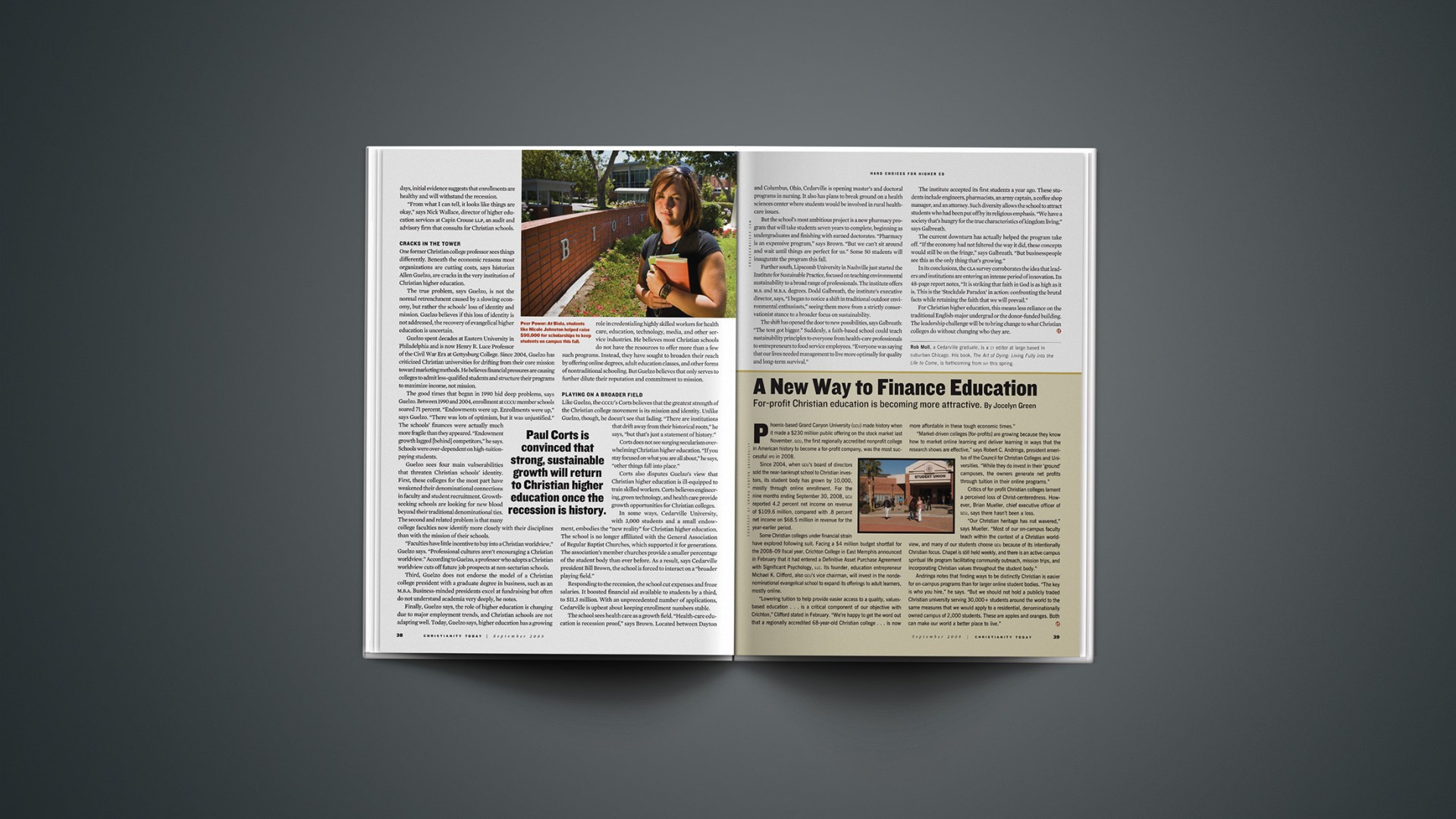Phoenix-based Grand Canyon University (GCU) made history when it made a $230 million public offering on the stock market last November. GCU, the first regionally accredited nonprofit college in American history to become a for-profit company, was the most successful IPO in 2008.
Since 2004, when GCU’s board of directors sold the near-bankrupt school to Christian investors, its student body has grown by 10,000, mostly through online enrollment. For the nine months ending September 30, 2008, GCU reported 4.2 percent net income on revenue of $109.6 million, compared with .8 percent net income on $68.5 million in revenue for the year-earlier period.
Some Christian colleges under financial strain have explored following suit. Facing a $4 million budget shortfall for the 2008-09 fiscal year, Crichton College in East Memphis announced in February that it had entered a Definitive Asset Purchase Agreement with Significant Psychology, LLC. Its founder, education entrepreneur Michael K. Clifford, also GCU’s vice chairman, will invest in the nondenominational evangelical school to expand its offerings to adult learners, mostly online.
“Lowering tuition to help provide easier access to a quality, values based education…is a critical component of our objective with Crichton,”Clifford stated in February. “We’re happy to get the word out that a regionally accredited 68-year-old Christian college…is now more affordable in these tough economic times.”
“Market-driven colleges [for-profits] are growing because they know how to market online learning and deliver learning in ways that the research shows are effective,” says Robert C. Andringa, president emeritus of the Council for Christian Colleges and Universities. “While they do invest in their ‘ground’ campuses, the owners generate net profits through tuition in their online programs.”
Critics of for-profit Christian colleges lament a perceived loss of Christ-centeredness. However, Brian Mueller, chief executive officer of GCU, says there hasn’t been a loss.
“Our Christian heritage has not wavered,”says Mueller. “Most of our on-campus faculty teach within the context of a Christian worldview, and many of our students choose GCU because of its intentionally Christian focus. Chapel is still held weekly, and there is an active campus spiritual life program facilitating community outreach, mission trips, and incorporating Christian values throughout the student body.”
Andringa notes that finding ways to be distinctly Christian is easier for on-campus programs than for larger online student bodies. “The key is who you hire,”he says. “But we should not hold a publicly traded Christian university serving 30,000-plus students around the world to the same measures that we would apply to a residential, denominationally owned campus of 2,000 students. These are apples and oranges. Both can make our world a better place to live.”
Copyright © 2009 Christianity Today. Click for reprint information.
Related Elsewhere:
This is a sidebar to the article, “Hard Choices for Higher Ed: In a bleak economy, Christian colleges reinvent themselves.”
Our earlier coverage of Grand Canyon University includes:
Christian Ed That Pays Off | Grand Canyon University becomes the first for-profit Christian college. (Feb. 2, 2005)
Grand Canyon University Downsizes Tenured Professors | First for-profit Christian college in U.S. says contracts were honored but not renewed. (May 24, 2005)
More on education and the recession are available in our full coverage areas.










